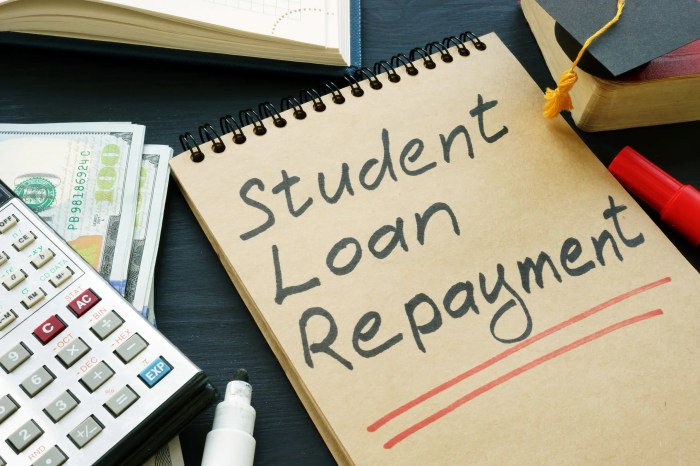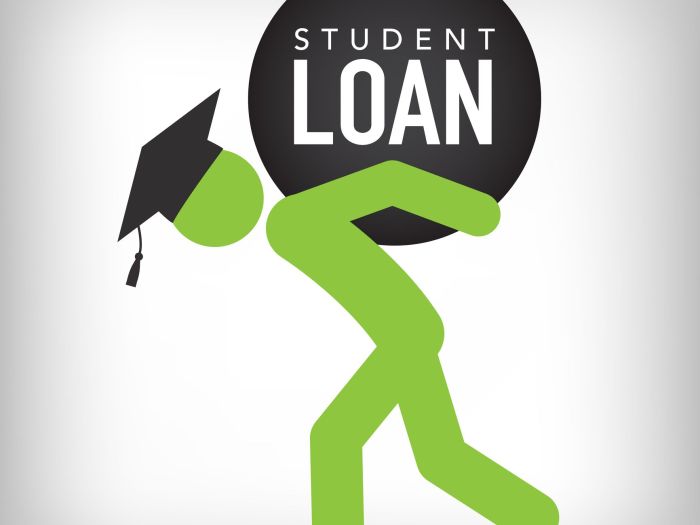
The question of whether to pay off student loans in one lump sum is a significant financial decision impacting your short-term cash flow and long-term financial well-being. This decision requires careful consideration of your current financial situation, potential investment opportunities, and the specific terms of your student loans. Weighing the immediate financial strain against the long-term benefits of eliminating debt and interest payments is crucial for making an informed choice.
This comprehensive guide explores the financial implications of both immediate and delayed repayment, providing a framework for assessing your personal circumstances and exploring alternative repayment strategies. We’ll examine the impact on your credit score, future borrowing capacity, and overall financial health, helping you determine the best course of action for your unique situation.
Exploring Alternative Repayment Strategies

Paying off student loans can feel overwhelming, but exploring different repayment strategies can significantly impact your financial well-being and timeline for becoming debt-free. Understanding your options and proactively managing your loans is key to achieving your financial goals. This section will examine various repayment plans and strategies to help you navigate this process effectively.
Comparison of Student Loan Repayment Plans
Several repayment plans cater to different financial situations. The Standard Repayment Plan involves fixed monthly payments over 10 years. Income-Driven Repayment (IDR) plans, such as the Income-Based Repayment (IBR), Pay As You Earn (PAYE), and Revised Pay As You Earn (REPAYE) plans, adjust monthly payments based on your income and family size, often extending the repayment period to 20 or 25 years. While IDR plans offer lower monthly payments, they typically result in higher total interest paid over the life of the loan. Choosing the right plan depends on your current income, financial goals, and risk tolerance. For example, someone with a high income might prefer the Standard plan to pay off their loans faster, minimizing overall interest costs, while someone with a lower income might find an IDR plan more manageable.
Strategies for Accelerating Loan Repayment
Accelerating loan repayment without a lump-sum payment involves strategic financial planning and disciplined saving. One effective strategy is to make extra payments beyond the minimum monthly amount. Even small additional payments can significantly reduce the total interest paid and shorten the repayment period. Another strategy involves consolidating multiple loans into a single loan with a potentially lower interest rate, simplifying repayment and potentially freeing up cash flow. Prioritizing higher-interest loans and allocating extra funds to those first is another effective approach. For example, if you have one loan at 7% and another at 4%, focusing extra payments on the 7% loan will yield greater savings in the long run.
Resources and Tools for Student Loan Management
Several resources can help you manage and optimize your student loan repayment. Your loan servicer’s website typically provides tools to track payments, view your loan balance, and explore repayment options. Numerous free online calculators can help you estimate the impact of different repayment strategies, comparing total interest paid and repayment timelines under various scenarios. Budgeting apps can also assist in tracking expenses and identifying areas where you can save money to allocate towards extra loan payments. Finally, free financial counseling services, often available through non-profit organizations, can provide personalized guidance and support in developing a comprehensive repayment plan.
Refinancing Student Loans: Pros and Cons
Refinancing student loans involves replacing your existing loans with a new loan from a private lender, often at a lower interest rate. The primary advantage is the potential for significant interest savings over the life of the loan, leading to faster repayment and reduced overall cost. However, refinancing may eliminate certain federal protections, such as income-driven repayment plans and loan forgiveness programs. It’s crucial to carefully weigh the potential benefits against the risks before deciding to refinance. For example, a borrower with federal loans eligible for Public Service Loan Forgiveness might forfeit this benefit by refinancing into a private loan. Thorough research and comparison shopping among lenders are essential to secure the best terms and ensure a responsible decision.
Understanding Loan Terms and Fees

Paying off your student loans early can seem appealing, but it’s crucial to understand the terms and conditions of your loans before making any significant financial decisions. Ignoring potential fees or penalties could negate the benefits of early repayment and even leave you worse off financially. This section will clarify the importance of reviewing your loan documents and understanding potential implications.
Prepayment Penalties and Hidden Fees Associated with Early Repayment
Prepayment Penalties
Many student loans, particularly private loans, may include prepayment penalties. These penalties are fees charged for paying off your loan before the scheduled maturity date. These penalties can significantly impact your overall savings. For example, a penalty of 1% of the remaining balance on a $20,000 loan would cost you $200. Before making a large lump-sum payment, check your loan agreement to determine if a prepayment penalty applies and how it’s calculated. If a prepayment penalty exists, carefully weigh the cost of the penalty against the potential benefits of early repayment. You might find that strategically paying down high-interest debt elsewhere is a more financially sound decision.
Hidden Fees and Charges
While prepayment penalties are a common concern, other hidden fees could also arise during early repayment. These may include administrative fees or processing fees for early loan payoff. These smaller fees, while individually insignificant, can accumulate and affect your overall savings. It is essential to thoroughly examine your loan agreement to identify all associated costs, ensuring you have a complete understanding of the total cost involved in paying your loans early.
Importance of Thoroughly Reviewing Loan Documents
Before making any substantial payments towards your student loans, meticulously review all loan documents. This includes the loan agreement, promissory notes, and any other relevant paperwork. This review should include paying close attention to details like interest rates, repayment schedules, and any clauses related to prepayment. Understanding these details will empower you to make informed decisions about your repayment strategy and avoid unexpected fees or penalties. If anything is unclear, contact your loan servicer directly for clarification.
Questions to Ask Your Loan Servicer Before Making a Large Payment
It’s prudent to contact your loan servicer before making a significant payment. This proactive step will prevent any unexpected charges or complications.
The following questions should be addressed before making a large payment:
- Are there any prepayment penalties associated with my loan?
- What are the exact procedures for making a large payment?
- Are there any additional fees or charges associated with early repayment (administrative fees, processing fees, etc.)?
- What is the exact amount needed to pay off the loan in full, including any outstanding fees or interest?
- Will the early payment affect my credit score?
- What documentation will be required to confirm full repayment?
Summary

Ultimately, the decision of whether to pay off your student loans in one lump sum is deeply personal. There’s no one-size-fits-all answer. By carefully analyzing your financial health, understanding your loan terms, and exploring alternative repayment options, you can make an informed decision that aligns with your long-term financial goals and overall well-being. Remember to prioritize creating a robust emergency fund and consider the potential opportunity costs before committing to a large, one-time payment. A well-considered plan, tailored to your individual circumstances, is key to navigating this important financial milestone.
Questions and Answers
What are prepayment penalties?
Prepayment penalties are fees charged by some lenders if you pay off your loan early. Check your loan documents to see if yours has one.
Can I refinance my student loans?
Yes, refinancing can lower your interest rate, potentially saving you money over the life of the loan. However, it might impact your eligibility for certain repayment plans.
What’s a good debt-to-income ratio?
Generally, a debt-to-income ratio below 36% is considered good. A lower ratio indicates better financial health and improves your chances of loan approval.
How much should I have in an emergency fund?
Aim for 3-6 months’ worth of living expenses in an easily accessible emergency fund before making a large loan payment.
